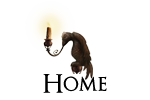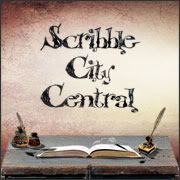Friday, 26 February 2010
My 'Special Feature' Interview with Reading Zone Book Club (YOUR SCHOOL CAN ALSO WIN BOOKS!)
I was interviewed a few weeks ago by Caroline Horn (who also works for The Bookseller). This is how it went....
Lucy Coats has been fascinated by the Greek myths and she has written a new series for younger readers (aged six to eight years) called Greek Beasts and Heroes. The myths are told by a storyteller, Atticus, during his journey to the great storytelling festival in Troy.
--------------------------------------------------------------------------------
The series will cover about 100 Greek myths in a largely chronological order, making the books also useful for older readers, too, as an introduction the Greek gods and heroes – especially if they are planning to see the recently-released Percy Jackson film.
The first four books of the planned 12-book series are published by Orion this month, February, with the remaining eight titles to follow in May and August. The first, The Beasts in the Jar, includes the story of creation and readers are introduced to the gods Zeus, Poseidon and Hades, as well as the myths of Theseus and the Minotaur, Icarus, Pandora, Arachne and Midas, among others. The series will also include less well-known stories, like the sharp-eyed King Sisyphus. Each of the stories carries colour illustrations by Anthony Lewis.
Coats, who studied Ancient History and Classics at university, says her interest in Greek mythology began at a young age. “From the age of about eight I read everything I could get my hands on and that has stayed with me. I love the fact that the myths can be endlessly recycled and told in different ways. If I am writing a contemporary story, I can take a character or two from the myths, adapt them and make their stories relevant to today.”
When setting out to write this series, she wanted to link the myths to the real places in Greece in which, according to local traditions, the myths are set. “I have always been interested in that side of the myths, that you can actually visit places where the stories are set such as the birth place of Aphrodite in Cyprus,” she says.
Coats decided that she could tell the myths through the character of Atticus, a storyteller who is travelling through Greece with his donkey. “I had done a lot of travelling through Greece and been to a number of the islands so I had a sense of the geographical landscape.”
She planned the series using “the most enormous map of Greece” that was covered in stickers and bits of string as she mapped out Atticus’ journey and the stories he would tell. The books will lead up to Atticus’ arrival in Troy for the storytelling festival, when he will tell the story of the Iliad. “I have been to a place they believe was Troy and it made me realise how tiny it is. I had never understood how Hector’s body could have been dragged around the city walls and then I understood, because the city was really small.”
While children often have to learn about the myths in school, Coats reminds us that the Greek myths were part of everyday life for Ancient Greeks which the children and adults would have learned from storytellers and during visits to their local temples. “They would also have learned the myths through theatre, which was very much a part of their lives.”
She encourages children at the schools she visits to tell their own myth or to imagine themselves to be like Achilles or Odysseus. “ They draw pictures of their heroes, write and illustrate their own stories and act them out, so it becomes very interactive and easier to relate to and to remember.”
The stories they most enjoy are the "slightly more gory ones" says Coats, with Heracles and his labours often a favourite. "They enjoy it when they bring back the cowardly king something nasty and the king hides from him in a jar, and of course when he has to shovel all the horse poo from the Augean stables in a single day."
Naturally some of the material in the adult myths has been slightly adapted to make it suitable for children – although, says Coats, children largely accept aspects like Zeus’ infidelity without too much questioning.
One of her favourite Greek myths is that of the fates which she explores in the story, The Cloth of Life. “The fates sit and weave and spin and work out all the fates of people. It’s my favourite story because it tries to explain why the world is as it is and it is so universal, you find it in many different cultures.”
You can find THE ORIGINAL INTERVIEW HERE and, if you have links to a school, please encourage them to join up and enter the COMPETITION TO WIN THE FIRST FOUR BOOKS
Subscribe to:
Post Comments (Atom)

















2 comments:
One of my favorite classes was Greek Mythology. I read everything I could get my hands on about it. What a great project. It must have been so much fun to write.
Yes, Jen, it was huge fun--and the research was fascinating too. I'm loving your Redhead Ranting, by the way--very very funny.
Post a Comment